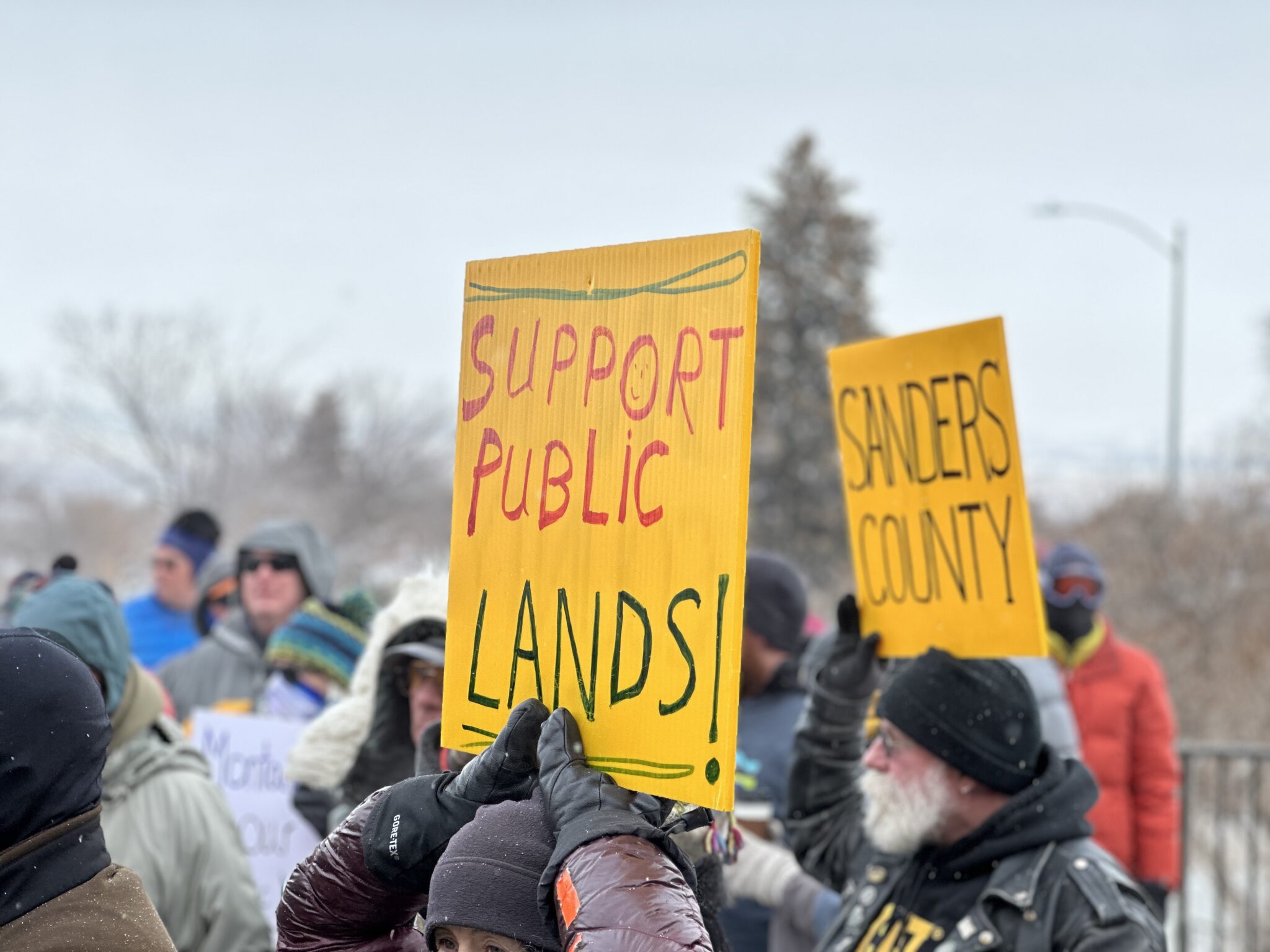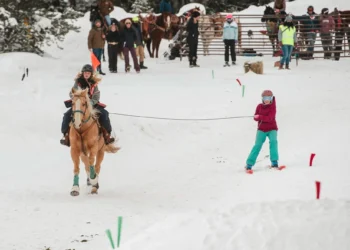One bill seeks to maintain Habitat Montana funding permanently; other provides funding for biennium only
By Blair Miller DAILY MONTANAN
Fights are ramping up at the state Capitol over what to do with Montana’s marijuana tax revenue and its funding of the Habitat Montana conservation program, as the two bills still moving through the legislature that address both contain vastly different end goals.
Conservation and outdoors groups have been loudly outspoken about what they see as efforts to redistribute more than $8 million a year in marijuana tax revenue currently allocated to Habitat Montana, showing up en masse to committee hearings to oppose several bills and holding a rally attended by hundreds at the Capitol in late February at which they called on lawmakers to keep their hands off the extra funding for the program.
Several of the groups opposed to shifting the funding away from Habitat Montana said this week they had seen a positive resolution when Senate Bill 442, sponsored by Sen. Mike Lang, R-Malta, which had sought to redistribute money going toward Habitat Montana and other programs to county road funding, was amended to restore the 20% of marijuana tax revenue currently going to the program on an ongoing basis – but through a slightly different mechanism.
Wild Montana State Policy Director Noah Marion said in a statement Thursday the amendment was “great news” for conservation and public land access and urged lawmakers “to push this bill over the line without delay.”
But another bill, House Bill 669 from Rep. Bill Mercer, R-Billings, could get in the way of that happening. It contains one-time funding for Habitat Montana and other programs currently receiving marijuana revenue only through the next biennium.
After the end of FY2025, all marijuana tax revenue – save for 6% allocated to the Healing and Ending Addiction Through Recovery and Treatment (HEART) fund – would go to the general fund, and lawmakers would decide where and how it should be spent starting in the next legislative session.
The reason for that has also split Mercer and fellow Republican lawmakers with Democrats and conservation groups, who see a key difference in how the allocation of the marijuana tax revenue was split up in the first place during the 2021 legislative session through House Bill 701.
As he told the House Appropriations Committee during the bill’s initial hearing, during executive action earlier this week, and again when the bill was heard on second reading on the House floor Friday, Mercer believes that I-190, the initiative that voters passed to legalize adult-use marijuana, appropriated the tax revenue and how it would be spent.
Mercer and fellow Republicans said several times during committee and floor discussions that it is the sole responsibility of the legislature under the Montana Constitution to appropriate money, and since they claim it was the initiative that outlined how the money should be spent, the current distribution takes the power of the purse out of the hands of lawmakers.
“The initiative was a very interesting approach to try to say to people, ‘If you vote for this, all these dollars will do these various things,’ which is not permissible under the initiative process,” Mercer told the Appropriations Committee earlier this week. “… The idea that we somehow have our hands tied behind our back and can’t decide how to use revenue is absolutely impermissible, and we shouldn’t allow it to continue.”
Rep. David Bedey, R-Hamilton, said allowing initiatives to appropriate money would lead to a “descent into chaos” and would lead to initiatives running public relations campaigns to do so.
Democrats on the floor Friday said the idea that constituents had appropriated money was flat out wrong.
Rep. Emma Kerr-Carpenter, D-Billings, noted that during the extensive work on the marijuana framework bill, HB701, lawmakers made changes to the revenue allocations that differed from what had been set as a framework in the initiative.
“I will say that many of us voted for those changes because we felt like it was our responsibility. … We changed the revenue allocations, just like this bill would,” she said. “However, I don’t think we need to relitigate 701. We passed the legislation last session; why are we voting on this bill?”
House Minority Leader Kim Abbott, D-Helena, said the initiative “absolutely did not” appropriate money but legalized adult-use marijuana and sent the money to the special revenue account to be distributed how lawmakers wished. Further, she said, the budget office and Department of Justice said the expenditures were subject to legislative appropriation.
“Certainly, the voters had an opinion about how we should be spending, but we don’t have follow those opinions,” she said. “But just because we don’t have to doesn’t mean we shouldn’t listen.”
The $353 million in marijuana sales in the 14 months since recreational products came to market have brought in $53.8 million in tax revenue, according to the Cannabis Control Division. In a fiscal note attached to Mercer’s bill, the Governor’s Office of Budget and Program Planning forecasts medical and adult-use sales will bring in between $52.9 million and $57.9 million in tax revenue annually over the next four years.
Under Mercer’s bill, the first $5.2 million would go toward Department of Revenue administrative costs, then continue to send $6 million to the HEART fund, as is the case under current law.
But instead of distributing out money to various funds from there – 20% for the Habitat Montana program; 4% to a state park account; 4% to a trails and recreational facility account; 4% to a nongame wildlife account; 3% or $200,000 to a veterans and surviving spouses revenue account; $150,000 to fund crisis intervention team training; and the rest to the general fund – Mercer’s bill would send all the money going to those accounts to the general fund starting in FY2026, to the tune of $41 million to $46 million per year.
The general fund under current law would receive about $30 million and $31 million in FY2026 and FY2027.
The bill was amended this week in Appropriations to make one-time appropriations for the biennium of $8.7 million to the Habitat Montana program; $1.75 million to the state park account; $1.75 million to the trails and recreational facilities account; $1.75 million to the nongame wildlife account; $2.5 million for conservation districts; and $2.5 million for the veterans and surviving spouses revenue account.
Mercer said the amendment still made the conservation and recreation programs whole over the next biennium, but said it should be up to future legislatures to determine how to move forward with the money starting with the 2025 session.
Rep. John Fitzpatrick, R-Anaconda, provided an example of what the next legislature might seek to do with the marijuana tax revenue when all the money is in the general fund.
“We have a drug calamity on our hands,” he said. “In 2025, we’re going to need a small fortune to fund drug treatment and law enforcement.”
Reps. Ed Buttrey, R-Great Falls, Paul Green, R-Hardin, and Mike Hopkins, R-Missoula, joined all 32 House Democrats in voting against the bill on its second reading, in a 65-35 vote. It will face a third reading before being sent over to the Senate.
Lang said he had not yet seen Mercer’s bill, or another bill from Republican Rep. Marta Bertoglio which was tabled in favor of Mercer’s, but said the Senate would be “addressing those as we go down the road.”
His bill puts 11% of the marijuana tax revenue to the HEART fund; 20% to a fund to construct and maintain county roads; 5% to the veterans and surviving spouses revenue account; 12% total to the state parks, trails and facilities, and nongame accounts; and 20% to a new “habitat legacy account.”
That new habitat legacy account would send 75% of its funds to the Habitat Montana program, and if the unobligated fund balance goes above $50 million, it would return the excess to the legacy account to be disbursed to Habitat Montana ongoing projects as well as other wildlife habitat improvement and stewardship projects.
Habitat Montana’s main source of funding is licenses bought by out-of-state hunters, which an FWP official said earlier this session brings in around $12 million each biennium. Under current law, the marijuana tax revenue would put another $8.3 million to $9.3 million toward the program each of the next four years.
Lang told the Daily Montanan he wants the tax revenue to go toward county roads because they tie in with much of the access to public lands in more rural parts of the state that don’t have the money needed to build and maintain roads.
His bill is scheduled for its second reading on the Senate floor on Monday, ahead of Tuesday’s transmittal deadline for revenue bills.
He said he hoped his bill would be supported by the agricultural and conservation industries, some of which hinted this week they were pleased with the new amended version, over any other revenue redistribution bills that have been brought this session.
“I want [agriculture] to get together on this thing; quit shooting each other,” he said.
















